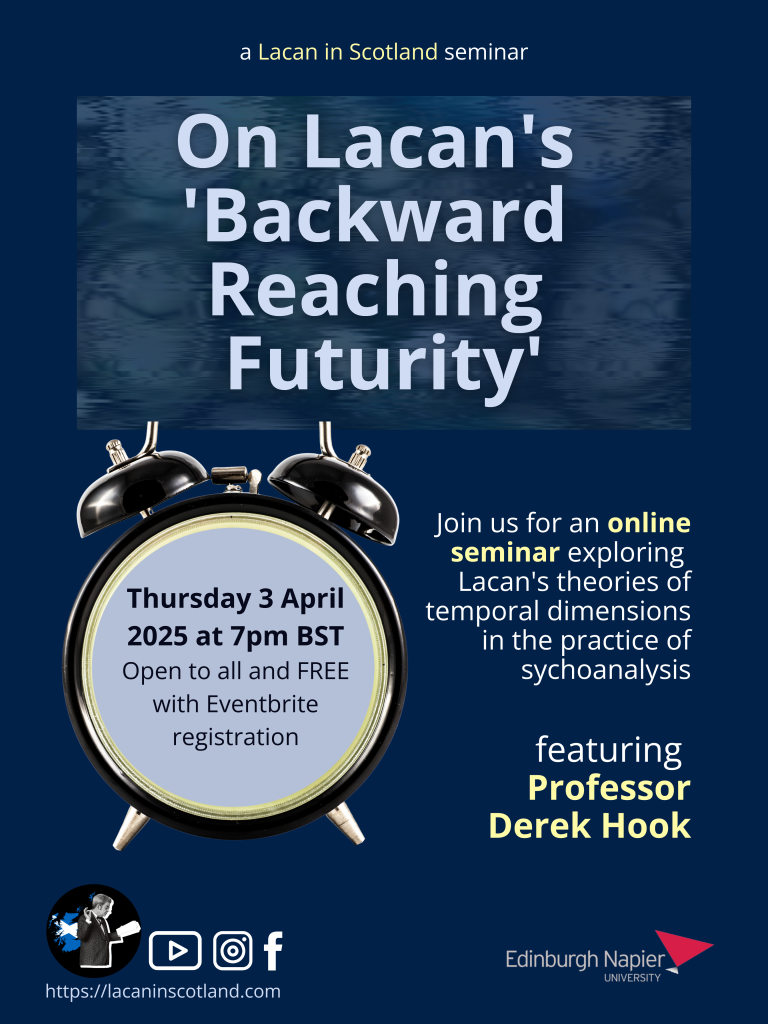Join our online seminar exploring Lacan’s innovative theories of temporal dimensions in the practice of psychoanalysis, with Professor Derek Hook

On Lacan’s ‘Backward Reaching Futurity’
In Lacanian circles, we often remark on Lacan’s innovations in re-thinking the time of the unconscious. As a matter of course, we emphasize Freud’s Nachträglichkeit (the factor of reverberation time/afterwardsness, or après-coup). We likewise highlight the dimension of logical time as opposed to psychological notions of development stages. We highlight Lacan’s critique of regression and reiterate ideas of anticipatory certitude alongside the obligatory reference to the temporality of the future anterior. How, though, are these ideas effectively implemented in clinical practice, and how do they relate to what we might call the ‘function of the limit’? How, furthermore, might several of Lacan’s technical innovations in respect of the time of sessions––scansion, punctuation, etc.––be said to extend Freud’s fundamental rule? And why should the dimension of a backward reaching futurity be so crucial if a psychoanalytic treatment is to enable ‘an unwriting of the future’?
Professor Derek Hook is a scholar and a practitioner of psychoanalysis with expertise in the areas of Lacanian psychoanalysis, post-colonial theory (the work of Frantz Fanon in particular), the psychology of racism and critical social psychology. In addition to co-editing the successful Palgrave Lacan Series with Calum Neill (which has published 16 titles in the past five years) he is one of three editors (along with Stijn Vanheule and Calum Neill) of the landmark 3-volume series Reading Lacan’s Écrits (Routledge). His most recent book is Six Moments in Lacan (2017). His edited collection, Lie on Your Wounds: The Prison Correspondence of Robert Mangaliso Sobukwe was published in 2019 (Wits University/New York University Press). He also has a successful YouTube channel.
The seminar will take place on Zoom on Thursday 3 April 2025 at 7pm-8:30pm* British Summer Time (BST).
*Please note that this seminar takes place one week later than our regular schedule (last Thursday of each month) and that the seminars for the 2024-2025 academic year start one hour earlier than in previous years. Eventbrite will display the correct time for you.
The event is open to everyone and free with registration via Eventbrite. The Zoom link will be available for registrants on the ‘Online Event Page’ (found when accessing your ticket on Eventbrite) on the day of the seminar.

